He fought for the future
Updated: 2015-08-08 01:39
By HATTY LIU in Vancouver(China Daily USA)
|
|||||||||
Victories at home
When the Japanese surrendered in August 1945, Wong was halfway through his training with the American command in Nelson, BC, and was preparing to travel to the States for further training.
“We were very lucky,” he said. “We were going to lose a lot of people.”
As two of the few Chinese-Canadian soldiers still in Canada by June 1945, Bing Wong and Daniel Wong also were among the first Chinese Canadians from BC to cast votes in the federal election.
By that time, the BC Legislature had granted the right to vote to Chinese Canadians currently serving in the war as well as Chinese-Canadian veterans from World War I, though Bing Wong’s and Daniel Wong’s ballots were cast in Calgary during advanced training for the CAPF.
Apart from the marksmanship, Wong considers having played a part in getting Chinese-Canadians the right to vote and immigrate nationwide after the war as his “greatest achievement”. However, discriminatory attitudes did not end even after Chinese Canadians received these rights.
Wong had considered teaching as a career but decided to study accounting after the war. He had trouble finding a job in a firm.
“I went to one company, they said, ‘Mr Wong, I think you’re a better accountant than the Caucasian employees I have, but the staff won’t take orders from a Chinese,’” he recalled. “My schoolmates who got jobs tried to get me in, but [the firm] would say, ‘No, we don’t want Chinese.’”
Wong searched for a job for 18 months until a representative from the Canadian Department of Veterans Affairs helped him come up with a better plan.
“They did a survey and said, ‘Mr Wong, there are no accountants in [Vancouver] Chinatown; you’re the only one,’ ” he said. “They said, ‘All those Chinese businesses need an accountant.’ ”
He was put in touch with an injured veteran who was also an accountant who tutored him over the phone since he “didn’t know anything about doing payroll or anything about [starting] a business”, Wong said.
“The other Chinese also encouraged me and brought their business to me, since they knew me well. So I looked after maybe 80 percent of the businesses in Chinatown — I’ve looked after about 200 restaurants.”
Wong’s firm on Pender Street in Vancouver Chinatown is still in the family today, operated by his son. Built on the roots he laid down with the indigenous community all those years back, Wong was elected a few years ago as the economic development designate for the National Aboriginal Veterans Association.
He said he is grateful for his experience in the army not only for helping him in his career but for the education it gave him about tolerance and discrimination.
“I found the army to be very accepting. I didn’t experience discrimination, and they tried to find me a job afterwards, for six months, and got frustrated on my behalf when they couldn’t,” he said. “The army was an exceptional place.”
“When you’re in uniform, you’re just treated like another soldier,” he said.
- Some 200 migrants believed dead in Mediterranean shipwreck
- Chinese FM rejects Philippine, Japanese, US claims on South China Sea issue
- 'Major breakthrough' may help solve riddle
- Hiroshima marks 70th anniversary of bombing
- World 'watching' Japan's next move
- Migrant boat capsizes in Mediterranean, at least 25 dead

 30 historic and cultural neighborhoods to visit in China
30 historic and cultural neighborhoods to visit in China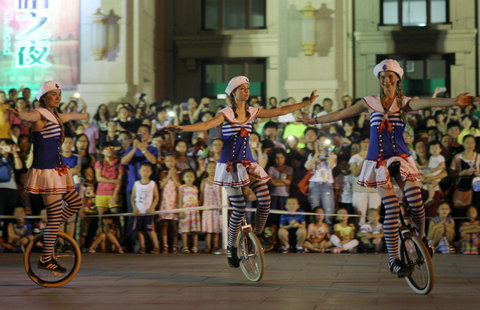
 Beijing Museum of Natural History unveils 'Night at the Museum'
Beijing Museum of Natural History unveils 'Night at the Museum'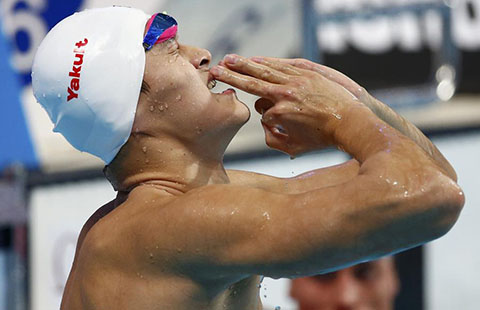
 Sun Yang wins third consecutive 800m free gold at worlds
Sun Yang wins third consecutive 800m free gold at worlds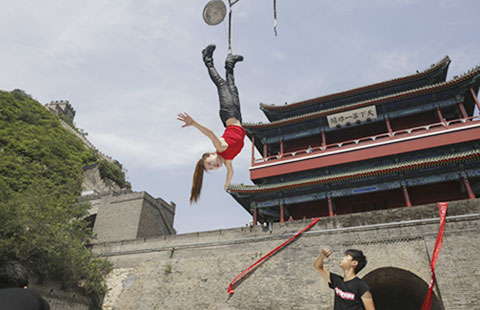
 Aerial escape
Aerial escape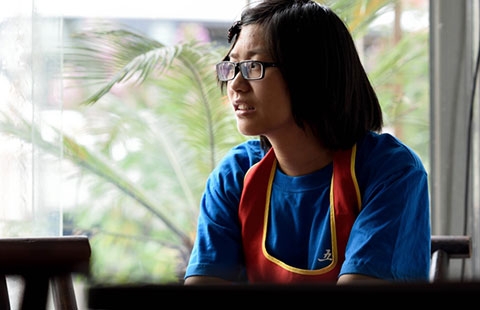
 Freshmen of top universities from poorer families work part time to reduce family burden
Freshmen of top universities from poorer families work part time to reduce family burden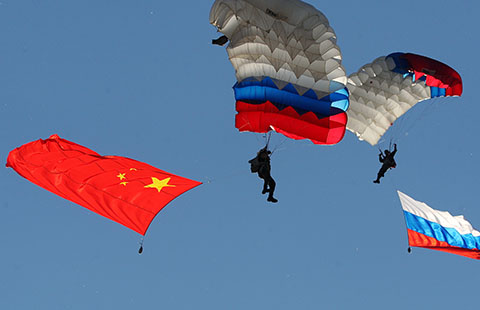
 17 armed forces take part in Russia military contest
17 armed forces take part in Russia military contest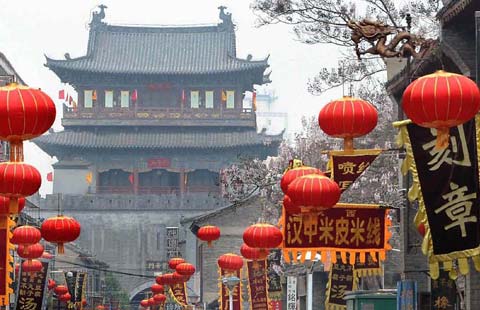
 A glimpse of traditional Chinese business blocks
A glimpse of traditional Chinese business blocks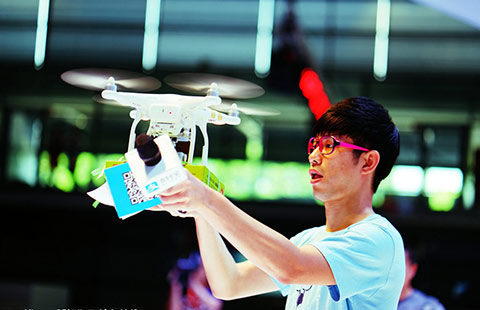
 Top 5 most popular drones in China
Top 5 most popular drones in China
Most Viewed
Editor's Picks

|

|

|

|

|

|
Today's Top News
China willing to work with US to contribute to world peace, stability
China asks further investigation on MH370
Police fatally shoot ax-wielding man at Nashville movie theater
Study-abroad tours in US booming
Malaysia confirms plane debris is from Flight MH370
IMF to study yuan inclusion
LA clinic seeks fertility-market access
China and US discuss ways to fight terror
US Weekly

|

|







